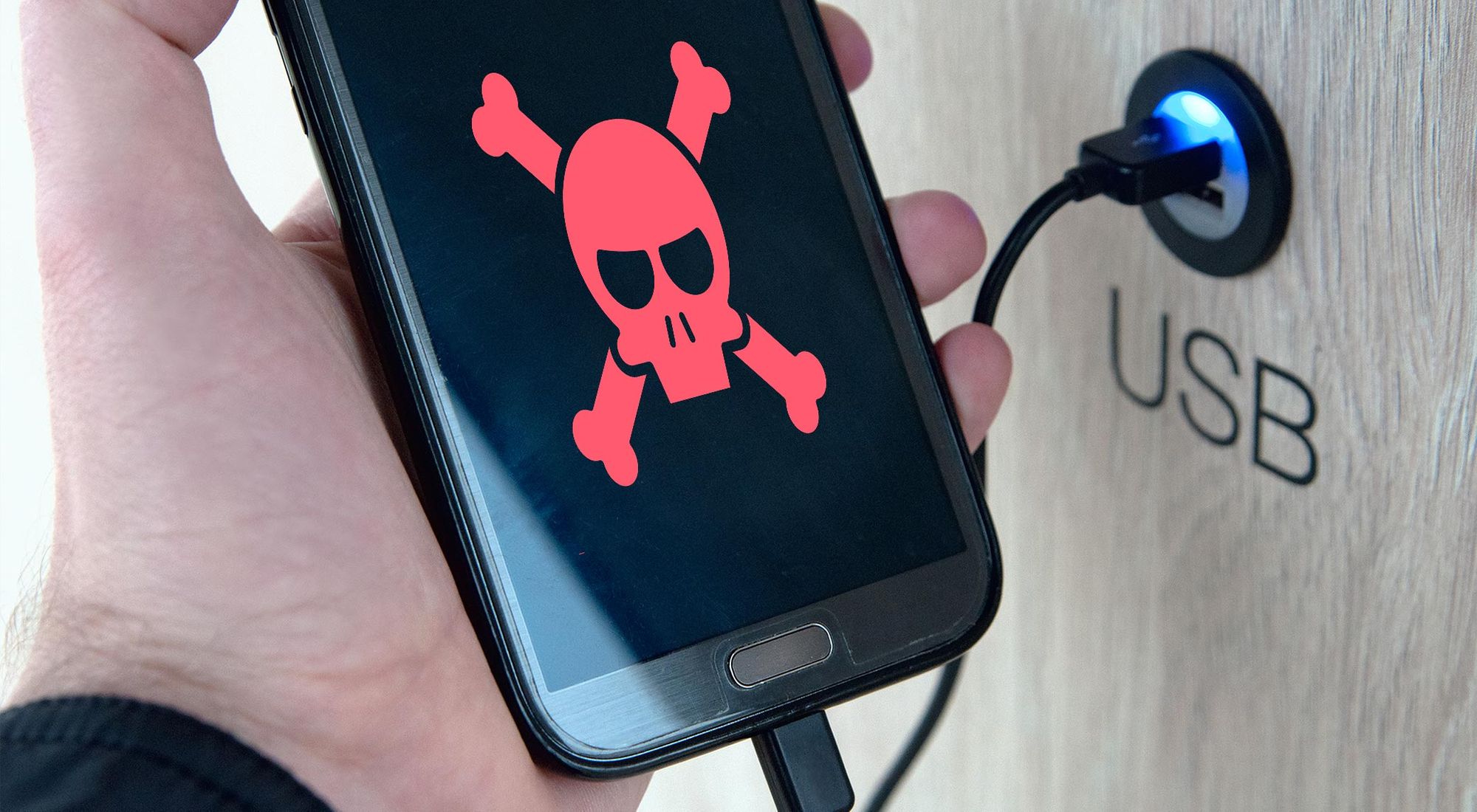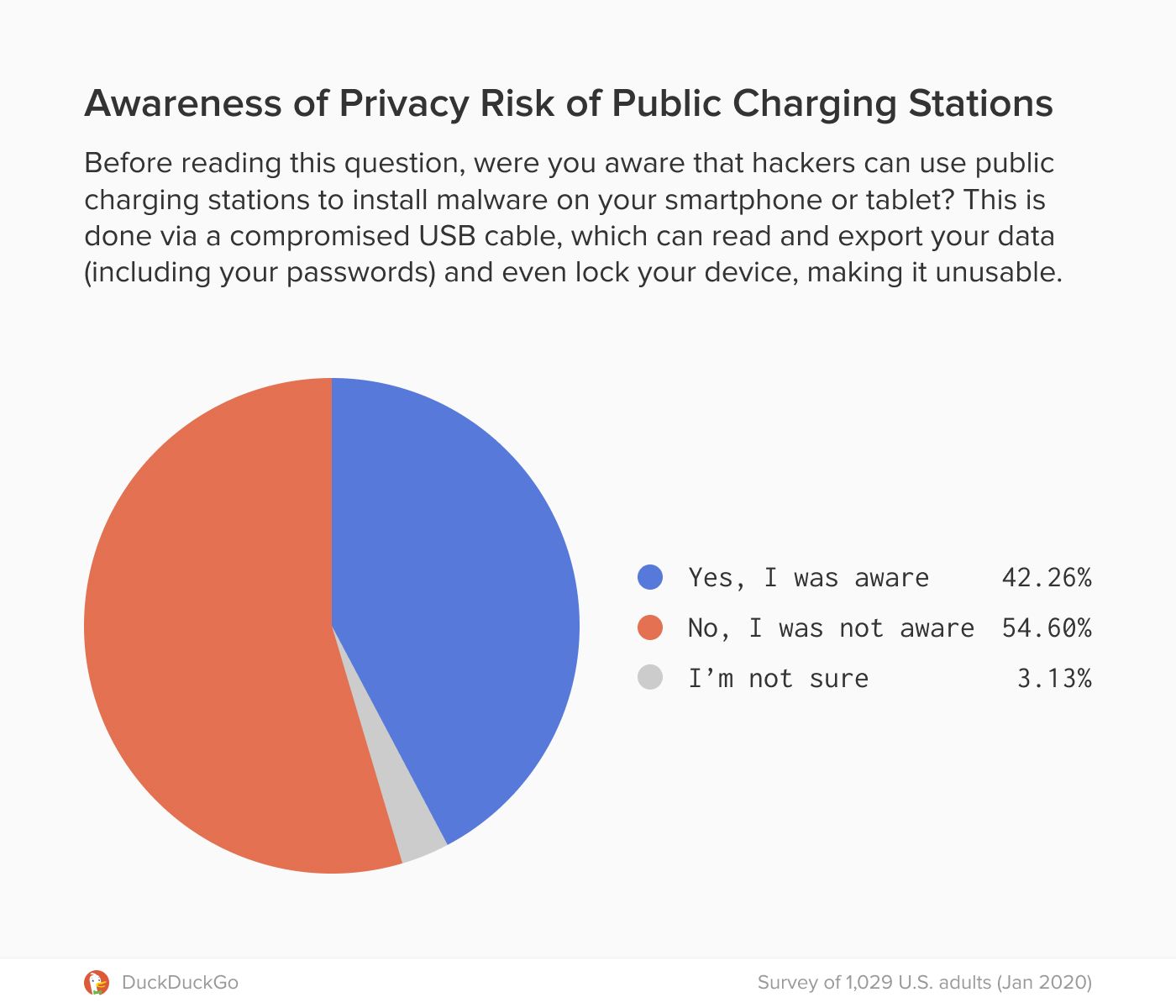This content originally appeared on DuckDuckGo Blog and was authored by Dax the duck

This is the second in a series of posts about common but largely unknown privacy risks.
If you get a bit frantic when your phone or tablet battery is low, you're not alone. An LG survey found that 90% of people experience “Low Battery Anxiety” when their phone’s battery dips below 20%. This can understandably cause you to seek out the nearest charger. But not all methods for boosting your battery power are safe!
The Risk: Charging your phone or tablet at a public charging station.
It's become commonplace to find free USB charging stations in many public areas, from airports to hospital waiting rooms. While this seems like a thoughtful accommodation, a quick recharge from a USB port in a public setting could actually put your data at risk of being stolen.

Although it has become synonymous with charging, USB technology was initially developed with the aim of transmitting data. Thus, hackers can use these public charging stations to install malware on your smartphone or tablet through a compromised USB cable. This process, called "juice jacking", allows hackers to read and export your data, including your passwords. They can even lock your device this way, rendering it unusable.
According to our survey of 1,029 American adults, 54.6% (±3.1) of all respondents weren’t aware of this risk ?.

| Answer Options | Percentage of Respondents |
|---|---|
| Yes, I was aware | 42.26% |
| No, I was not aware | 54.60% |
| I'm not sure | 3.13% |
The Solutions:
1) Carry a portable battery pack of your own. These are easy to find and, so long as you keep them charged up, provide the safest alternative to public USB charging hubs.
2) If you currently carry around your USB cord, keep the alternating-current (AC) adapter with you too. Yes, it will mean that you have to properly plug your device into a wall socket, but the added security of AC power only is worth the minimal space it’ll take up in your bag.
3) Buy a USB charge-only adapter, otherwise known as a "USB condom”. These clever attachments serve as an intermediary between your USB cord and the charging port, protecting your device’s data in the process.
Methodology
Survey results are based on the polling of a random sample of 1,029 (January 2020) American adults (18+) via SurveyMonkey’s “Audience” platform, which ensures the demographic make-up of respondents is representative of the U.S. population. Survey respondents were paid and a confidence level of 95% was used for calculating the values above.
If you’re eager to read part three of this series, follow us on Twitter, or sign up for our privacy newsletters for our latest updates.
This content originally appeared on DuckDuckGo Blog and was authored by Dax the duck
Dax the duck | Sciencx (2020-03-12T12:00:00+00:00) The Risky Business of Charging Your Phone in Public. Retrieved from https://www.scien.cx/2020/03/12/the-risky-business-of-charging-your-phone-in-public/
Please log in to upload a file.
There are no updates yet.
Click the Upload button above to add an update.
